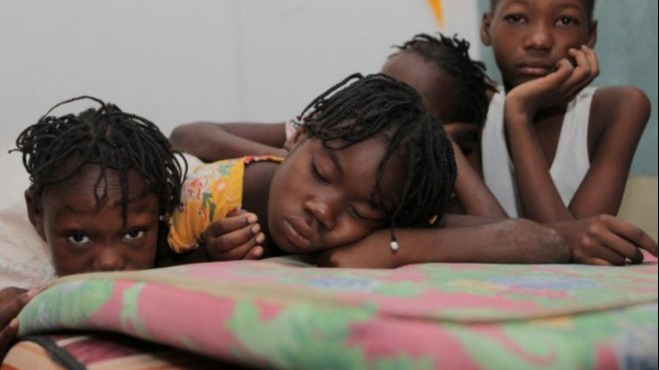
In Cite Soleil more than 20% of the children are severely malnourished. Photo / AFP
By Guillermo Alvarado
Haiti could soon cease to be a country, with the attributes that are generally recognized, to become a fragmented territory under the domination of violent armed gangs, which impose their "laws" in a given area and confront each other for the control of neighborhoods and area residents.
This is the result of centuries of foreign intervention, of abuses committed by powers, big business consortiums and not a few of those organizations known as non-governmental, which prevented the development of a solid, sovereign and independent State.
Things began to get completely out of control after the earthquake of January 2010, which revealed the extreme weakness of local institutions, but the most critical point occurred in July last year, when President Jovenel Moïse was assassinated, a fact that has not yet been clarified.
Since then, this sister nation has been practically headless and all attempts to form an executive capable of imposing order and curbing mafia groups have failed.
The situation is dramatic in a town that ranks eighth in the world in terms of food insecurity, with 22 percent of children suffering from chronic malnutrition and varying degrees of helplessness.
A most peculiar event occurred this weekend in the Cité Soleil neighborhood, perhaps the poorest of the poor, when some 315 children and a few adults burst into a school seeking refuge from the regular shootings that occur there.
Last week alone, gang clashes caused some 300 deaths in the Haitian capital, which has become a no man's land.
The children, among them many who do not know whether their parents are alive or not, or what their whereabouts are, in fact turned the educational establishment, closed for the summer vacations, into an improvised camp.
Nobody is having a good time in that Caribbean country, which is in the process of being encircled by its neighbors from the Dominican Republic, but the children are the ones who suffer the most.
The economic crisis and violence make them targets of organized crime for labor or sexual exploitation. Many minors are driven into early marriage, unwanted pregnancies or rape, networks from which it is virtually impossible to escape.
As with other tragedies, in Palestine, Myanmar or Libya, the international community prefers to turn a blind eye, believing it to be true that "out of sight, out of mind", without realizing that their inaction makes them accomplices in this infamy.

